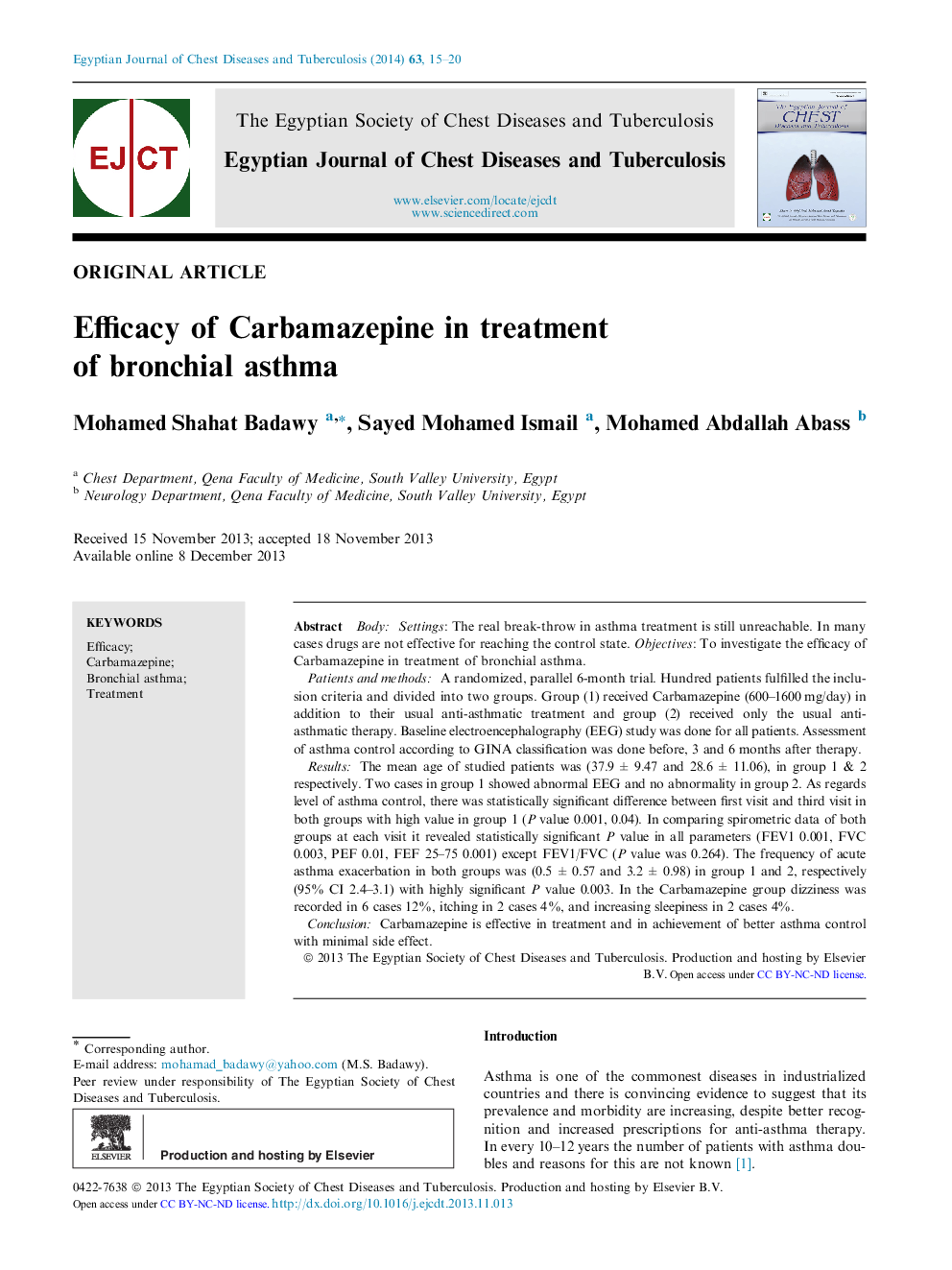| Article ID | Journal | Published Year | Pages | File Type |
|---|---|---|---|---|
| 3400129 | Egyptian Journal of Chest Diseases and Tuberculosis | 2014 | 6 Pages |
BodySettings: The real break-throw in asthma treatment is still unreachable. In many cases drugs are not effective for reaching the control state. Objectives: To investigate the efficacy of Carbamazepine in treatment of bronchial asthma.Patients and methodsA randomized, parallel 6-month trial. Hundred patients fulfilled the inclusion criteria and divided into two groups. Group (1) received Carbamazepine (600–1600 mg/day) in addition to their usual anti-asthmatic treatment and group (2) received only the usual anti-asthmatic therapy. Baseline electroencephalography (EEG) study was done for all patients. Assessment of asthma control according to GINA classification was done before, 3 and 6 months after therapy.ResultsThe mean age of studied patients was (37.9 ± 9.47 and 28.6 ± 11.06), in group 1 & 2 respectively. Two cases in group 1 showed abnormal EEG and no abnormality in group 2. As regards level of asthma control, there was statistically significant difference between first visit and third visit in both groups with high value in group 1 (P value 0.001, 0.04). In comparing spirometric data of both groups at each visit it revealed statistically significant P value in all parameters (FEV1 0.001, FVC 0.003, PEF 0.01, FEF 25–75 0.001) except FEV1/FVC (P value was 0.264). The frequency of acute asthma exacerbation in both groups was (0.5 ± 0.57 and 3.2 ± 0.98) in group 1 and 2, respectively (95% CI 2.4–3.1) with highly significant P value 0.003. In the Carbamazepine group dizziness was recorded in 6 cases 12%, itching in 2 cases 4%, and increasing sleepiness in 2 cases 4%.ConclusionCarbamazepine is effective in treatment and in achievement of better asthma control with minimal side effect.
